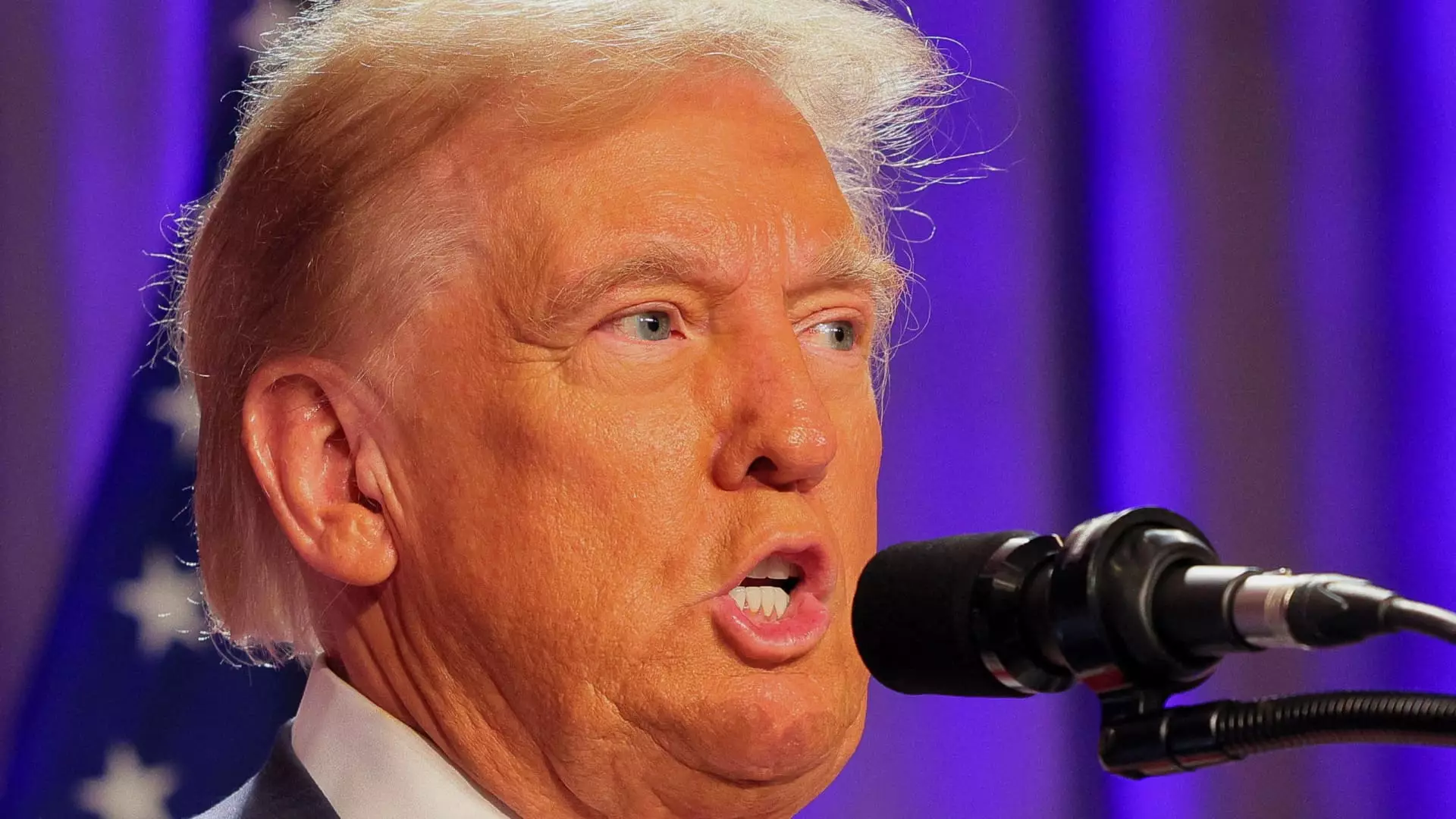In the wake of Donald Trump’s recent interview with NBC’s “Meet the Press,” significant concerns arise about future U.S. foreign aid, particularly regarding Ukraine, as well as America’s engagement with international alliances such as NATO. Trump’s comments provoke deeper analysis about the implications of shifts in America’s foreign policy and how they could reshape global relations.
During the interview, Trump suggested that Ukraine may receive diminished military assistance once he assumes office, implying a re-evaluation of the U.S. commitment in response to European contributions. He highlighted the staggering financial burden the U.S. has shouldered since the onset of the conflict, throwing down a gauntlet towards Europe, which he argues has not contributed sufficiently. Trump’s contention is that Europe needs to “equalize” its funding with the United States to reflect a balanced commitment within NATO.
This point raises critical questions about the fairness of international financial responsibilities in times of crisis. The United States has pledged approximately $62 billion in aid to Ukraine since the conflict with Russia escalated in 2022, while Europe has contributed a considerably lesser amount. Trump’s message that Europe needs to pony up raises issues of solidarity and responsibility among NATO allies, highlighting potential fractures in a historically unified alliance.
Trump’s mention of Ukrainian President Volodymyr Zelenskyy as a skilled salesman was particularly notable. By attributing military aid to Zelenskyy’s diplomatic flair rather than Ukraine’s pressing security needs, Trump suggests a view of international politics that prioritizes transactional relationships over genuine humanitarian or strategic concerns. This perspective aligns with Trump’s long-standing belief in realpolitik, where pragmatic considerations often overshadow moral imperatives.
Additionally, Trump’s remarks hint at a broader pattern in his approach to foreign policy; he often favors direct personal relations with international leaders, viewing diplomacy as a negotiation rather than a deliberative and multifaceted process. By emphasizing his “good relationship” with leaders such as Vladimir Putin and Xi Jinping, Trump positions himself as a negotiator who could broker peace without resorting to the traditional frameworks that have characterized international diplomacy.
Trump’s stance on NATO remains firm; he continues to call for member nations to “pay their bills.” This rhetoric brings to light an increasingly transactional view of international alliances that may lead to a significant realignment in how the U.S. interacts with its NATO partners. The prospect of Trump withdrawing the U.S. from NATO has been recurrent during his political career and poses existential challenges to the alliance, which has been a cornerstone of European security since the end of World War II.
His suggestion that Europe bears a greater responsibility for its security in light of the proximate threat of Russia further exacerbates the already complex dynamics in transatlantic relations. Should Trump follow through with diminished support for Europe, it could have dire ramifications for Western unity against Russian aggression.
One of the most striking assertions from Trump’s comments during the interview was his call for an “immediate ceasefire and negotiations” in Ukraine. His conviction that the war “should never have started” reflects his broader views on conflict resolution that prioritize unilateral negotiations. While this approach may resonate with some who desire an end to hostilities, it oversimplifies the nuances of a deeply entrenched geopolitical conflict. The call for peace through negotiation also raises questions about what compromises might entail for Ukraine’s sovereignty and territorial integrity.
Furthermore, Trump’s willingness to engage China as a potential mediator indicates an evolving perception of global power dynamics. His relationships with major world leaders could be pivotal not only for Ukraine but also for amplifying China’s role on the global stage, particularly in contentious areas like Taiwan.
As Trump prepares to take office again, global observers will watch closely how his administration redefines U.S. leadership in the world. His willingness to engage with adversaries like Russia and China while pushing allies to increase their defense spending presents a dual-edged sword. It opens the door to a potentially more chaotic international arena, where power dynamics are not governed by traditional alliances but by a series of aggressive negotiation tactics and self-interest.
With events rapidly unfolding in places like Syria—where Trump’s assertion of Assad’s demise reflects both the volatility in regional politics and Russia’s waning influence—it’s clear that the international landscape is poised for a reevaluation of commitments. In turn, Trump’s policies will undoubtedly spark debate on the future of America’s role on the global stage and whether or not it will reinforce or unravel the alliances that have emerged in the aftermath of the Cold War. As one era ends and another begins, the ramifications of Trump’s foreign policy approach will be felt long into the future.

